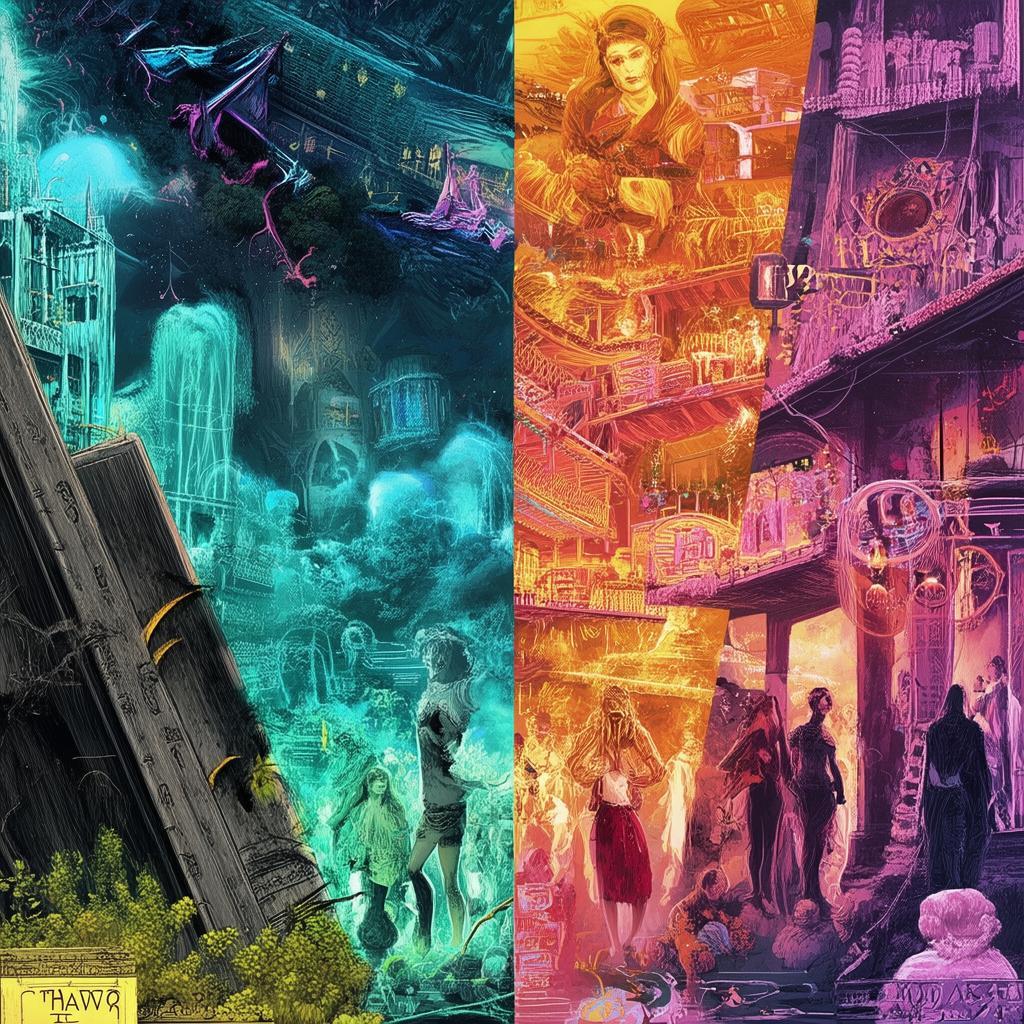The Labyrinth of Reason: Socrates' Last Stand
In the heart of ancient Athens, the sun dipped below the horizon, casting long shadows over the bustling city. The air was thick with the scent of olive trees and the distant hum of markets. In a dimly lit room, a group of philosophers gathered, their eyes fixed on the central figure, Socrates. The room was a crucible of ideas, a place where the greatest minds of the age debated the nature of virtue, knowledge, and justice.
Socrates, a man known for his relentless pursuit of truth, had become a polarizing figure. His method of questioning, known as the Socratic method, had turned the world of philosophy on its head. He believed that through rigorous inquiry, one could uncover the truth, even if it led to uncomfortable conclusions. His student, Plato, had taken these ideas and built a philosophical empire, but Socrates remained a man of the streets, a teacher to the common folk.
The debate had been brewing for years, a clash of philosophies that would change the course of Western thought. Today, it was to reach its climax. The room was filled with a mix of awe and trepidation as Socrates stood before his adversaries, his eyes gleaming with the fire of conviction.

"Men of Athens," Socrates began, his voice resonating with the weight of his words, "I have spent my life seeking the truth. And in my quest, I have come to understand that the greatest enemy of truth is not ignorance, but the illusion of knowledge. For many believe they know the truth, when in reality, they are merely repeating the words of others."
The room fell into a hush, the air thick with the tension of the debate. Socrates turned to his most ardent critic, a man named Antisthenes. "Antisthenes, you claim that virtue is knowledge, that to be good is to know what is good. But what if the knowledge we possess is flawed? What if our understanding of virtue is as false as the images we see in a mirror?"
Antisthenes, a man of passion and intellect, stepped forward. "Socrates, you are a master of the Socratic method, but you forget that true knowledge is not about what we do not know, but what we do know. Virtue is indeed knowledge, and to know what is good is to be good."
Socrates smiled, a knowing glint in his eye. "And what if the knowledge we possess is false? What if our understanding of virtue is based on flawed premises? Then our actions, no matter how virtuous they may seem, are built upon a foundation of sand."
The debate raged on, each philosopher presenting their arguments with fervor. Socrates, with his characteristic wit and wisdom, dismantled their arguments, revealing the flaws in their reasoning. Plato, who had watched his teacher for years, was both impressed and troubled by the depth of Socrates' insights.
As the debate reached its crescendo, Socrates turned to Plato. "My dear friend, you have inherited my teachings, and I am proud of you. But remember, the pursuit of truth is a journey, not a destination. Do not become so consumed by the pursuit of knowledge that you forget the human element, the need for compassion and understanding."
Plato nodded, his eyes reflecting the weight of Socrates' words. "I will not forget, Socrates. But what of you? You have spent your life seeking the truth, and yet you have been found guilty of corrupting the youth of Athens. What will become of you?"
Socrates smiled, a serene calm settling over his face. "I have lived a good life, Plato. I have sought the truth, and in doing so, I have found it. Whether I live or die, the truth will continue to be sought, questioned, and debated. And in that, I have found my greatest joy."
The trial had ended, and Socrates was sentenced to death. As he walked the streets of Athens, his final thoughts were not of fear or regret, but of gratitude. He had lived a life of purpose, a life dedicated to the pursuit of truth, and in that, he had found his greatest fulfillment.
The Labyrinth of Reason: Socrates' Last Stand is a tale of the ultimate pursuit of truth, a story that captures the essence of Socrates' philosophy and the profound impact it had on the world. It is a story that will resonate with readers, provoke thought, and leave them pondering the nature of truth, knowledge, and virtue.
✨ Original Statement ✨
All articles published on this website (including but not limited to text, images, videos, and other content) are original or authorized for reposting and are protected by relevant laws. Without the explicit written permission of this website, no individual or organization may copy, modify, repost, or use the content for commercial purposes.
If you need to quote or cooperate, please contact this site for authorization. We reserve the right to pursue legal responsibility for any unauthorized use.
Hereby declared.









